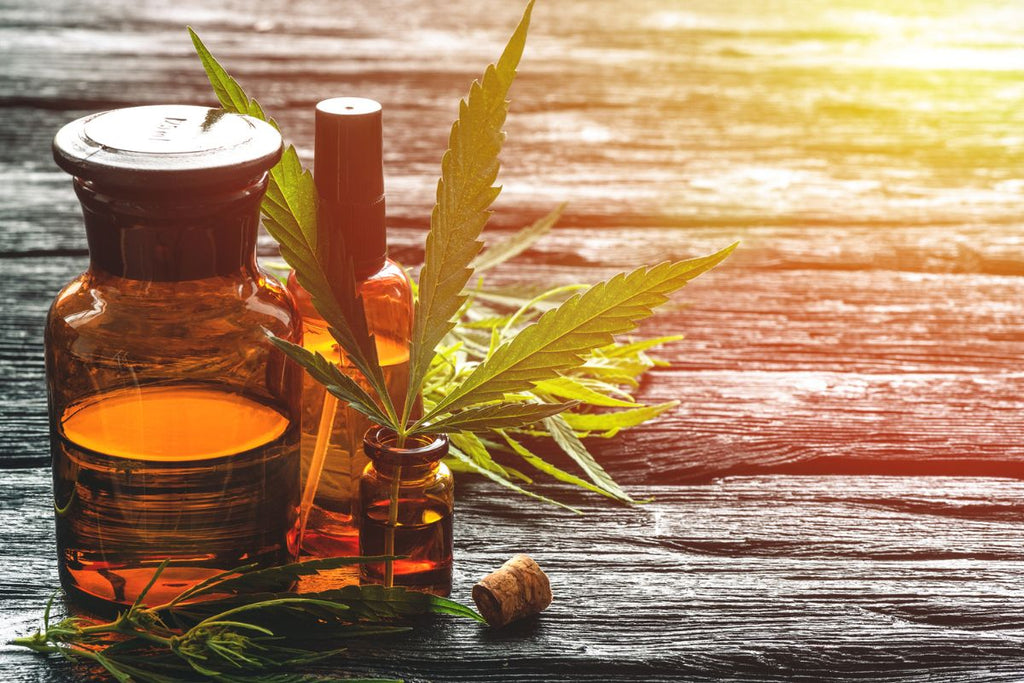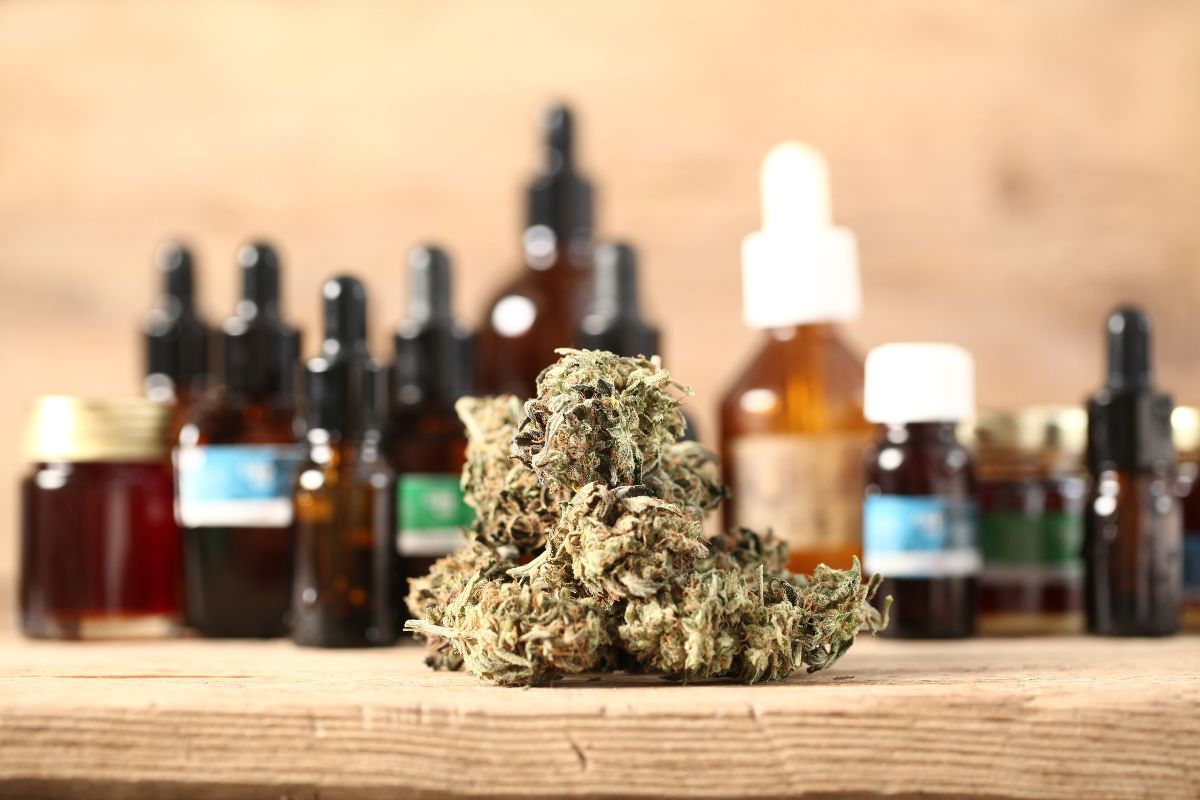
Cannabidiol, often known as CBD, has long been hailed as a miracle elixir for a variety of ailments.
It has a wide range of uses, from alleviating anxiety and insomnia to easing pain.
The FDA recognizes the interest in cannabis, particularly CBD, but cautions that additional study is required. TrustedSource’s only one prescription CBD medicine has been authorized by the FDA for the treatment of epilepsy so far.
That implies that any CBD product purchased over the counter (OTC) does not have FDA clearance.
CBD oils are made up of more than just CBD.
CBD oil may not always include just CBD and oil. Cannabis sativa produces about 100 phytocannabinoids, with CBD and THC being two of the most well-known cannabinoids among scientists. However, there are others that are significant, especially CBN and CBG.
When you purchase a CBD oil product, it will inform you if it is full spectrum or wide spectrum, which tells you how much THC, if any, the product contains. Each product will also indicate whether or not it contains additional cannabinoids such as CBN or CBG.
Each spectrum indicates the numerous additional components that operate in tandem with the CBD molecules to improve the overall CBD effects. CBD's full spectrum or wide spectrum status is determined by how it is processed after being extracted from the Cannabis sativa plant.
Knowing this information is critical for analyzing wide spectrum CBD versus full spectrum CBD and deciding which is best for you for everyday CBD usage. Let's take a look at the extraction procedure to see how these formulations are made.

Choosing a CBD product, whether full-spectrum or broad-spectrum, is an essential decision that should not be rushed. To help you make an informed decision, here's what you should know:
How full-spectrum and broad-spectrum CBD compare
Full-spectrum, broad-spectrum, and CBD isolate are all varieties of CBD products.
- Full-spectrum CBD. Tetrahydrocannabinol (THC) is one of the components of the cannabis plant that is present in full-spectrum CBD (THC). To be considered legal, a full-spectrum substance must have a THC concentration of less than 0.3 per cent. You may also be able to buy full-spectrum products with greater THC levels in places where cannabis is legal.
- Broad-spectrum CBD. CBD THC is not present in this kind of CBD. This isn't a pure CBD product since it contains additional cannabinoids from the cannabis plant. It's the middle child of the three CBD options.
- CBD isolate. CBD isolate is the purest form of the compound. Isolated CBD products, on the other hand, do not include any of the other cannabinoids present in cannabis.
Pros and cons of full-spectrum CBD
The entourage effect is one of the main advantages of using full-spectrum CBD. You might enjoy greater advantages from cannabis when it is taken in combination with other cannabinoids, according to a hypothesis.
The following are some of these elements:
- plant-based cannabinoid (like CBD and THC)
- (Compounds that influence the aroma and taste of cannabis) flavonoids terpenes
Full-spectrum CBD may be your best choice if you want to get the most out of cannabis.
According to one 2011 review, combining phytocannabinoids and terpenes may alleviate symptoms of inflammation, anxiety, and discomfort. Researchers found CBD to be the most promising treatment for a variety of skin and brain problems.
However, if you consume a big enough amount of a powerful enough substance, you may feel "high" because of the THC.
Not all full-spectrum products will, however, give you a high. No euphoric effects may be expected from using little amounts of low-potency items.
You may also be more likely to fail a drug test if you use full-spectrum products since they include THC.
Pros and cons of broad-spectrum CBD
Because it contains no THC, broad-spectrum CBD has the ability to keep you alert and unhindered by a "high" sensation.
One disadvantage of CBD without THC is that it may not be as effective as the two together. This still needs more study, but it seems that they perform best when surrounded by one another.
This is not to suggest that you won't get any of the advantages of the entourage effect from broad-spectrum products. The other cannabinoids, terpenes, and flavonoids found in broad-spectrum CBD may give additional health advantages.
CBD Extraction Methods
Cannabinoids, flavonoids, and terpenes are extracted from raw hemp and then infused into a carrier oil; however, the cannabinoid profile of your CBD oil may fluctuate depending on the strain of cannabis utilized during the extraction process.
Hemp-based extracts, for example, often contain less than 0.3 percent THC, rendering them non-intoxicating while keeping significant levels of CBD. Cannabis extracts are sometimes extracted from strains with an equal CBD-to-THC ratio or THC concentration more than 0.3 percent.
What CBD producers do with the extracted cannabinoids determines whether the finished product is called full spectrum, wide spectrum, or merely a CBD isolate.
Now that we've discussed how they're made, you can learn more about each CBD spectrum and what it means to you.
Which type of CBD is right for you?
Broad-spectrum CBD is definitely your best choice if you're searching for a health boost from CBD but don't want the THC effects.
If you don't mind THC and want to get the most out of your CBD product, full-spectrum is definitely the best option for you.'
What about CBD isolates?
This kind of CBD is the purest, including no additional plant components or cannabinoids. As a result, the entourage effect will not be possible. There is, however, some evidence that CBD isolation may be beneficial.
It is common for isolates to be completely absent of both odor and flavoring. The earthiness of conventional CBD makes them an excellent option for those who don't enjoy the taste or smell.
If you want to stay clear of any products that include THC, CBD isolate may be an excellent alternative.
What does the research say about CBD?
Despite the many claims made in favor of CBD, there are just a few clinical studies to back them up. These health advantages are currently supported by scientific data. Keep in mind that they are all off-label applications except seizures. Epidiolex is the only FDA-approved CBD product.
Pain
There has been some evidence that both THC and CBD, the active ingredients in cannabis, have pain-relieving properties in trials on animals, according to a review of CBD research published in 2018.
However, there is a lack of human studies on CBD for pain relief.
Published in 2019, a small trial of chronic pain patients indicated that CBD decreased opioid usage and improved pain. CBD was shown to be effective in reducing opiate cravings in yet another research released in 2019. Those who had a heroin use problem but were drug-free were part of the study.
Study participants with osteoarthritis who took a daily dose of 250 mg of cannabidiol (CBD) saw a statistically significant decrease in knee pain, as compared to the placebo. During this trial, synthetic CBD gel was applied to the skin via a transdermal patch daily.
Rheumatoid arthritis sufferers found Sativex, a drug that includes both THC and CBD but is not licensed for use in the US, to be useful in alleviating pain in an early trial of 75 participants.
Anxiety and depression
PTSD and social anxiety disorder (SAD) may both benefit from CBD's anti-anxiety properties (PTSD).
CBD has been demonstrated to lower anxiety levels in persons with SAD, while many studies have indicated that CBD may aid with symptoms unique to PTSD.
Sleep
If you're having trouble sleeping because of pain or worry, it's possible that CBD might help you get some shuteye.
Epilepsy
Lennox-Gastaut syndrome and Dravet syndrome are uncommon kinds of epilepsy that can be treated with CBD-based Epidiolex. Adults and children over the age of one may benefit from its usage.